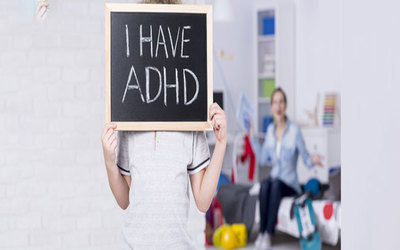You are at work and one day you start to notice how this one co-worker is just all over the place.
[the_ad id=”6238″]
He is beside himself, unable to organize things and irking people around him and you somehow find him – unfocused.
This sparks a comparison in your head: you think that your 10-year-old behaves the same way, except that he is more hyperactive!
You guess your co-worker probably has Attention Deficit Hyperactivity Disorder (ADHD).
Stunning as the revelation might be, both adults and children can be affected by ADHD. While some diagnosed at young age, some with un-diagnosed ADHD continue in adulthood. In India, about 11.3% of the population is affected by ADHD, of whom about 66% are male.
But What Is ADHD, Really?
It is a disorder of the brain that causes one to be hyperactive and impulsive, so much so that it affects daily functioning or development.
There are some specific characteristics of ADHD that you can keep an eye out for.
- Lack of attention is one of the first signs of ADHD. If you find that your child or someone around you constantly shifting focus from task to task, disorganized, or lacks persistence in anything, this could just be more than defiance.
- Another common sign is hyperactivity. You may see the person moving from situation to situation even if inappropriate, or they are constantly fidgety, talk too much, or very restless.
- Impulsiveness is also common in individuals with ADHD. You may find them making hasty decisions; they may have an inability to wait for an outcome or may expect immediate rewards or gratification.
The signs of ADHD can appear as early as the age of 3; they can even persist in adulthood—provided that the signs were there before 12 years of age.
The condition usually genetic, but can also caused by smoking, alcohol and drug use during pregnancy, exposure to toxins such as lead during pregnancy, low birth weight, and brain injury.
While ADHD has no cure, there are some things you can do to manage it!
A diagnosis of ADHD is only done by a certified psychologist or psychiatrist specializing in ADHD. Some doctors prescribe medications that stimulate the brain to focus better. Under medical supervision, stimulants are usually safe.
Other measures that can help ADHD are more long-drawn, but they are bite-sized activities that can improve the condition of those with ADHD. They include:
- using specific places for keys, bags, etc.
- creating a list for all the things to do in a day
- having a structured routine, which can help improve this type of behavior.
Parents, teachers, friends, and peers can also help by rewarding positive behavior or by telling them what can be better.
Source:

